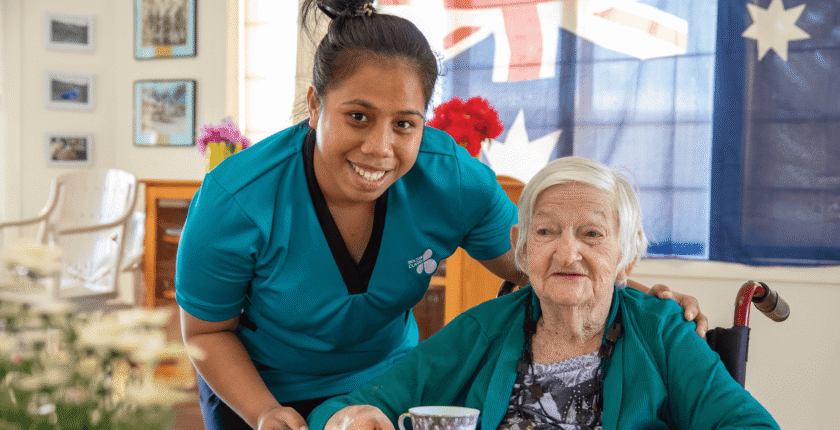Complete 7 Step Guide to Working in Australia: How Timor-Leste Workers can join the PALM Scheme
Do you want to work in Australia? The Pacific Australia Labour Mobility (PALM) scheme offers an amazing opportunity for Timorese workers to gain valuable experience, earn good wages, and learn new skills in Australia. Every year, hundreds of Timorese people successfully work in Australia through this program, supporting their families and communities back home.
This guide will help you understand how the PALM scheme works, if you are eligible, how to apply, and what to expect when working in Australia in a precise and easy to understand format for everyone interested in this opportunity.
Table of Contents
What is the PALM scheme?
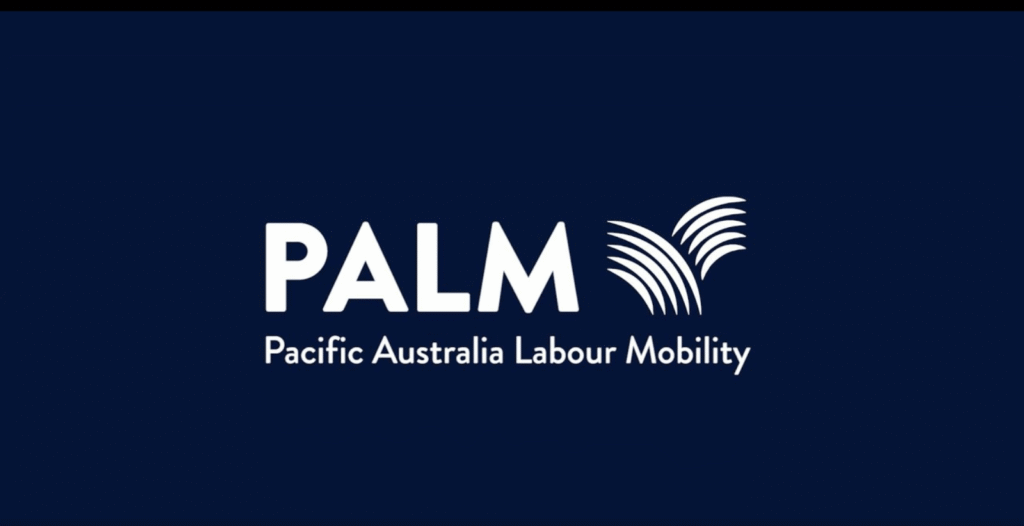
The Pacific Australia Labour Mobility (PALM) scheme is an Australian Government program that helps Australian businesses hire workers from Timor-Leste and Pacific island countries when they cannot find enough local workers. The scheme offers two types of work:
- Short-term work: Jobs lasting up to 9 months, often in seasonal industries like fruit picking
- Long-term work: Jobs lasting between 1 – 4 years in various industries
Many Timorese workers have already found success through this program. For example: Maria from Dili worked for two years in hospitality in regional Australia, sending money home to help build a house for her family. João from Baucau has returned to the same farm in Queensland for three seasons, using his earnings to start a small business in his hometown.
Am I Eligible for the PALM Scheme?
To join the PALM scheme, you need to meet these requirements:
Basic Requirements
- Age: You must be at least 21 years old
- Passport: You must have a valid passport or be able to get one
- Health: You must be physically fit and healthy for the work
- Character: You must have no criminal record and be of good character
- Return intention: You must plan to return to Timor-Leste after your work ends
- English: For long-term work (1-4 years), you need basic English skills
Additional Requirements
- If you have lived in another country for 12 months or more after turning 16, you will need a police check from that country
- You need to have the right skills or experience for the job you are applying for
- You must be willing to learn and commit to the employer’s values
If you’re not sure if you qualify, contact the National Directorate of Foreign Employment (SEFOPE) for advice. They can help you understand if you meet the requirements.
How to Apply for the PALM Scheme
Applying for the PALM scheme involves several steps. Here’s what you need to do:
Step 1: Contact SEFOPE
The first step is to contact the National Directorate of Foreign Employment (SEFOPE), which manages the PALM scheme in Timor-Leste. They will explain the current opportunities and registration process.
- For short-term work (up to 9 months): Email swp.lsu.tl@gmail.com
- For long-term work (1-4 years): Email pls.lsu.tl@gmail.com
Step 2: Register for the Work-Ready Pool
If you meet the basic requirements, SEFOPE will help you register for the “work-ready pool.” This is a database of eligible workers that Australian employers can select from. You will need to provide:
- A copy of your passport or birth certificate
- Your work history and skills
- Contact information
- Medical information
- References who can confirm your work experience
Step 3: Prepare for and Attend Interviews
When Australian employers need workers, they will select candidates from their pool of applications. If you are selected for consideration, you will be invited for an interview. This might be in person or by video call.
Interview Tips:
- Dress neatly and professionally
- Be on time
- Speak clearly and honestly about your experience
- Show enthusiasm for the work
- Ask questions about the job if you have any
Step 4: Complete Health Checks
If an employer wants to hire you, you will need to complete a medical examination to ensure you are fit for the work. This will include:
- General health check
- Blood tests
- Vision test
- Chest X-ray
Step 5: Visa Application
If you pass the medical check and are selected by an employer, SEFOPE will help you apply for the appropriate Australian visa (usually a Subclass 403 visa). You will need to:
- Complete visa application forms
- Provide biometric information (fingerprints and photo)
- Meet character requirements
- Pay visa fees (often arranged through the employer)
Step 6: Pre-Departure Training
Before leaving for Australia, you will attend pre-departure training organized by SEFOPE. This training covers:
- Australian workplace culture
- Your rights and responsibilities
- Money management
- Health and safety
- Cultural adjustment
- What to pack
Step 7: Travel to Australia
Once your visa is approved, travel arrangements will be made. Your Australian employer will usually pay for your flight to Australia (though this cost may be gradually deducted from your wages). Someone from your employer will meet you at the airport when you arrive in Australia.
Types of Jobs and Work Opportunities
Timorese workers are employed in various industries in Australia. Here are the main types of jobs available:
Agriculture and Farming
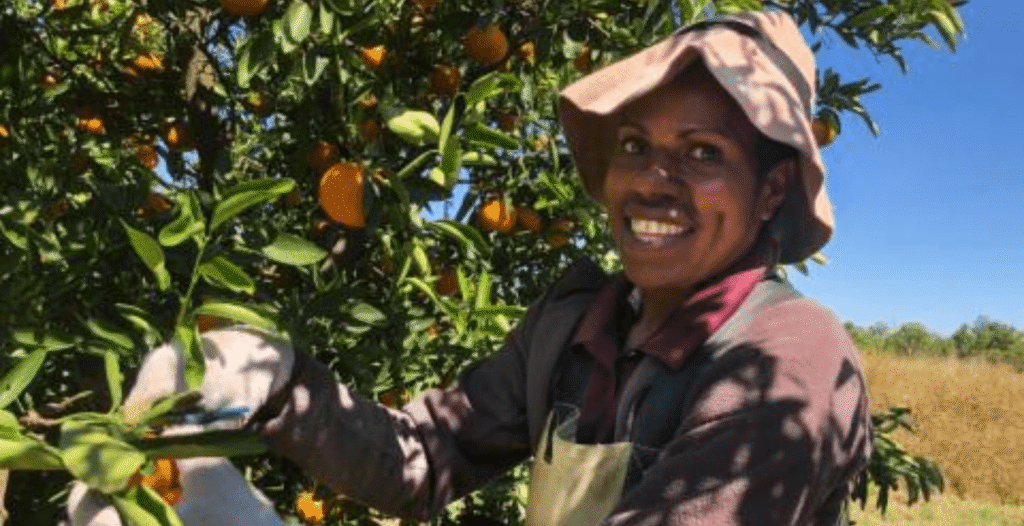
This is the largest sector for PALM scheme workers. Jobs include:
- Fruit and vegetable picking
- Packing produce
- Pruning trees and vines
- Planting crops
- General farm work
These jobs often require physical strength and stamina. You will work outdoors in different weather conditions.
Hospitality and Tourism
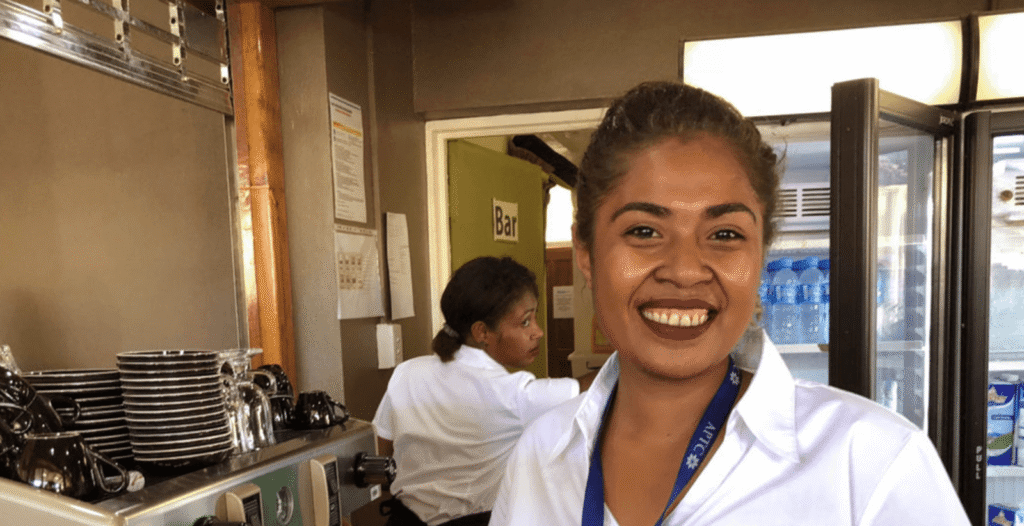
Jobs in this sector include:
- Hotel housekeeping
- Kitchen hand work
- Food service
- Cleaning
- Grounds maintenance
These jobs require good customer service skills and attention to detail.
Meat Processing

Work in meat processing facilities includes:
- Production line work
- Packaging
- Cleaning
- Quality control
These jobs are usually indoors and can involve repetitive tasks in cool environments.
Aged Care
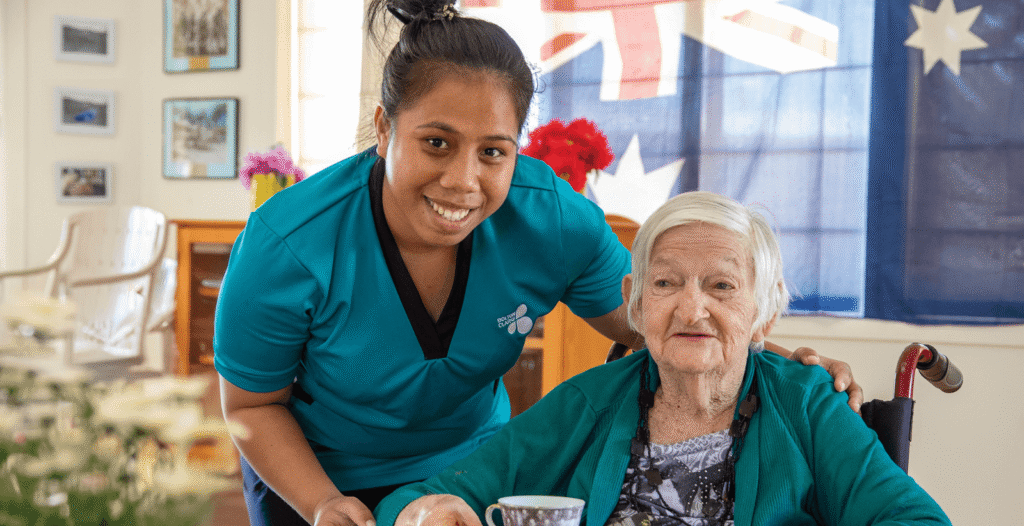
Some long-term workers find positions in aged care, including:
- Assistant roles
- Cleaning
- Food service
- Laundry services
These jobs require patience, compassion, and good communication skills.
Other Industries
Depending on your skills and experience, you might find work in:
- Construction
- Manufacturing
- Fisheries
- Forestry
Skills You Can Learn
Working in Australia gives you the chance to learn valuable skills:
- Technical skills specific to your industry
- Workplace safety procedures
- English language improvement
- Computer skills
- Customer service
- Money management
- Team collaboration
Many workers use these skills to find better jobs or start businesses when they return to Timor-Leste.
Preparing for Life in Australia

What to Pack
Australia has strict quarantine laws, so do not bring:
- Food
- Plants
- Seeds
- Animal products
Do bring:
- Clothing suitable for the climate where you’ll be working
- Personal toiletries
- Any regular medications (with prescriptions)
- A small amount of Australian dollars for your first few days
- Important documents (passport, visa papers, employment contract)
- Photos of family
- Phone and charger
Understanding Australian Climate
Australia has different climate zones:
- Northern Australia: Hot and humid with wet and dry seasons
- Southern Australia: Four seasons with cold winters and hot summers
- Central Australia: Very hot days and cold nights, very dry
Ask your employer about the local climate so you can pack appropriate clothing.
Cultural Differences
Australian culture may be different from what you’re used to:
- Australians are generally informal and casual
- Punctuality is very important for work
- People usually address each other by first names
- Men and women are treated equally in the workplace
- Direct communication is valued
- “Please” and “Thank you” are used frequently
Australian Workplace Culture
Understanding workplace expectations will help you succeed:
- Safety is taken very seriously
- You must follow all safety instructions
- Being on time is essential
- If you’re sick, you must call your supervisor
- Ask questions if you don’t understand something
- Take breaks only at designated times
- Respect all coworkers regardless of gender or position
Basic English for Work
Learning these phrases will help you at work:
- “I don’t understand. Can you please explain?”
- “How do I do this?”
- “Is this correct?”
- “I need help, please.”
- “I am finished.”
- “I am not feeling well.”
- “Thank you.”
- “Excuse me.”
Your Rights and Responsibilities in Australia
Your Rights as a Worker
All workers in Australia, including those on the PALM scheme, have these rights:
- Fair pay according to Australian law
- Safe working conditions
- Regular breaks during work
- Protection from discrimination and harassment
- Access to workers’ compensation if injured
- The right to join a union
- Paid sick leave (for permanent positions)
Your Pay and Working Hours
- You will be paid at least the minimum wage for your industry
- Most full-time workers work about 38 hours per week
- You may be offered overtime (extra hours), which is usually paid at a higher rate
- You will receive a payslip showing your earnings and deductions
- Pay is usually deposited directly into your bank account weekly or fortnightly
Superannuation
- Superannuation is retirement savings that employers must pay in addition to your wages
- The current rate is 11% of your ordinary earnings
- This money is held in a superannuation fund until you leave Australia
- You can claim this money when you return to Timor-Leste
Taxes
- You will pay tax on your earnings in Australia
- Tax is automatically deducted from your pay
- The amount depends on how much you earn
- You will need to file a tax return at the end of each financial year (June 30)
- You may get some tax back if you’ve paid too much
Healthcare
- You will have health insurance while in Australia
- The cost is usually arranged by your employer and may be deducted from your pay
- This insurance covers doctor visits, hospital care, and some medications
- Always carry your health insurance card
- In emergencies, call 000 for an ambulance
If You Have Problems at Work
If you experience problems such as:
- Not being paid correctly
- Unsafe working conditions
- Harassment or discrimination
- Accommodation issues
You can:
- Talk to your supervisor or employer first
- Contact your PALM scheme liaison officer
- Call the PALM scheme worker hotline: 1800 51 51 31
- Contact the Fair Work Ombudsman: 13 13 94
Following Visa Conditions
It’s very important to follow your visa conditions:
- Work only for your approved employer
- Attend work as required
- Return to Timor-Leste when your visa ends
- Follow Australian laws
Breaking visa conditions could result in your visa being cancelled and you having to return to Timor-Leste early.
Daily Life in Australia

Accommodation
Your employer will arrange accommodation for you, which might be:
- A shared house with other workers
- On-farm accommodation
- A hostel or boarding house
You will pay rent from your wages, but this cannot be more than a reasonable amount (usually not more than 15% of your wages).
Your accommodation should have:
- A bed and storage for your belongings
- Access to bathroom facilities
- Kitchen facilities
- Heating or cooling as needed for the climate
Transportation
Depending on where you work:
- Your employer may provide transportation to and from work
- You might use public transportation (buses, trains)
- Some workers buy bicycles for local travel
- Some get Australian driver’s licenses (this requires passing a test)
Shopping and Food
- Supermarkets are the main places to buy food
- Markets are good for fresh produce
- You can find some Asian ingredients in larger towns
- Cooking your own food is much cheaper than eating out
- Shopping with other workers and sharing meals can save money
Staying in Touch with Family
To keep in contact with family and friends in Timor-Leste:
- Buy an Australian SIM card for your phone
- Use free Wi-Fi where available
- Use apps like WhatsApp, Facebook Messenger, or Viber
- Schedule regular call times with family
- Consider buying phone credit for family members in Timor-Leste
Community and Social Activities
Many Timorese workers report meeting people through:
- Local Timorese communities
- Church groups
- Sports teams
- Community events
- Friendships with coworkers
Participating in these activities can help reduce homesickness and builds life long connections.
Managing Your Money
Australian Currency
Australia uses dollars and cents:
- Coins: 5c, 10c, 20c, 50c, $1, $2
- Notes: $5, $10, $20, $50, $100
Banking
When you arrive:
- Your employer will help you open an Australian bank account
- You’ll receive a bank card to access your money
- Learn how to check your balance online or with an app
- Be careful with your PIN (personal identification number)
- Never share your banking details with others
Budgeting Tips
To make the most of your earnings:
- Create a weekly budget for expenses
- Set savings goals
- Limit spending on non-essentials
- Cook meals rather than buying takeaway food
- Share costs with housemates when possible
- Track your spending
Sending Money Home
Options for sending money to Timor-Leste include:
- Bank transfers
- Money transfer services like Western Union or MoneyGram
- Online services like WorldRemit or Wise
Compare fees and exchange rates to get the best deal. Regular smaller transfers often work better than occasional large ones.
Avoiding Scams
Be careful of:
- People offering to help manage your money
- Requests to transfer money to people you don’t know
- “Too good to be true” investment opportunities
- Anyone asking for your bank details
- Pressure to make quick financial decisions
If unsure, ask your supervisor or support person for advice.
Health and Wellbeing
Staying Healthy
To maintain good health while working:
- Drink plenty of water, especially when working outdoors
- Wear appropriate clothing for the weather
- Use sun protection (hat, sunscreen, sunglasses)
- Eat a balanced diet
- Get enough sleep
- Exercise regularly
- Wash hands frequently
Mental Health
Working far from home can be challenging:
- Stay connected with family and friends
- Talk about your feelings with trusted people
- Participate in community activities
- Maintain cultural practices when possible
- Seek help if you feel consistently sad or anxious
In Case of Illness or Injury
If you get sick or injured:
- Tell your supervisor immediately
- For minor issues, visit a local doctor (called a GP)
- For emergencies, call 000 or go to a hospital
- Keep all medical receipts for insurance claims
- Follow medical advice for recovery
Building Skills for Your Future
Making the Most of Your Experience
To gain valuable skills during your time in Australia:
- Ask questions and show interest in learning
- Volunteer for training opportunities
- Practice your English whenever possible
- Learn about different work methods and technologies
- Take notes about techniques you could use back home
- Build relationships with supervisors who can teach you
Returning Home to Timor-Leste
Preparing for Your Return
As your work period nears its end:
- Confirm your return date with your employer
- Ensure all your paperwork is complete
- Apply for your superannuation payment
- Close your Australian bank account or arrange access from Timor-Leste
- Pack your belongings, considering baggage limits
- Say goodbye to friends and colleagues
Using Your Experience
When you return home, consider how to use your:
- New skills and knowledge
- Work experience (ask for a reference letter)
- Savings (plan how to invest or use them wisely)
- Connections (stay in touch with Australian contacts)
Many returned workers start businesses, build homes, support family education, or apply for skilled positions.
Returning to Australia
If you performed well, you may have opportunities to:
- Return for another season (for seasonal workers)
- Be recruited again by the same employer
- Recommend family or friends for the program
- Apply for different positions based on your experience
Conclusion
The PALM scheme offers a valuable opportunity for Timorese workers to earn good wages, learn new skills, and support their families. While working in Australia comes with challenges, proper preparation and a positive attitude can help you make the most of this experience.
By following the application steps, understanding your rights and responsibilities, managing your money wisely, and focusing on building skills, you can create a successful future for yourself and contribute to Timor-Leste’s development.
If you’re interested in applying, contact SEFOPE today to learn about current opportunities and start your journey.
Frequently Asked Questions
How much money can I earn in Australia?
Wages depend on your job, industry, and hours worked. All workers must be paid at least the minimum wage under Australian law. Most PALM scheme workers earn between AUD $700-$1200 per week before tax, depending on their hours and role. From this, deductions will be made for tax, accommodation, and other agreed expenses.
Can I bring my family to Australia?
No, the PALM scheme does not allow workers to bring family members. You will travel to Australia alone and your family will remain in Timor-Leste. This is why good communication options are important.
What happens if I get sick in Australia?
You will have health insurance that covers doctor visits and hospital care. Your employer should help you access healthcare when needed. For serious illness, you may be entitled to paid sick leave (depending on your employment type).
Can I change employers while in Australia?
Generally, your visa is linked to working for a specific employer. However, in certain circumstances, transfers to another approved PALM scheme employer may be possible. This must be arranged through official channels, not independently.
How long does the application process take?
From initial registration to departure for Australia typically takes 3-6 months, depending on employer demand, visa processing times, and completion of required checks.
Can I extend my stay in Australia?
Some workers may be offered extensions within the limits of the PALM scheme (up to 4 years maximum). This depends on employer needs and your performance. All extensions must be arranged through proper channels.
What happens if I lose my job?
If your employment ends early, your employer and the PALM scheme administrators will try to find you another position with an approved employer. If this isn’t possible, you may need to return to Timor-Leste earlier than planned.
How do I deal with homesickness?
Homesickness is normal. Connect with other Timorese workers, join community activities, maintain regular contact with family, and keep busy with positive activities. If homesickness becomes overwhelming, talk to your supervisor or support person.
Can I drive in Australia?
You can drive if you obtain an Australian driver’s license or if your Timor-Leste license qualifies for use in Australia (usually with an international driving permit). You must follow all Australian road rules, which may be different from those in Timor-Leste.
What should I do in an emergency?
For any emergency requiring police, fire, or ambulance services, call 000. Save important numbers in your phone: your supervisor, accommodation manager, PALM scheme support contact, and the PALM scheme worker hotline (1800 51 51 31).
Additional Resources
- SEFOPE Contact Information:
- Short-term work: swp.lsu.tl@gmail.com
- Long-term work: pls.lsu.tl@gmail.com
- Australian Embassy in Timor-Leste:
- Website: https://timorleste.embassy.gov.au/
- Phone: +670 332 2111
- PALM Scheme Worker Hotline:
- Phone: 1800 51 51 31 (free call in Australia)
- Useful Apps:
- Currency converter
- Translation apps
- Banking apps
- Weather apps
- Maps and navigation
- Community Support:
- Timorese community groups in Australia (your employer can help you connect)
- Church groups
- Cultural associations

